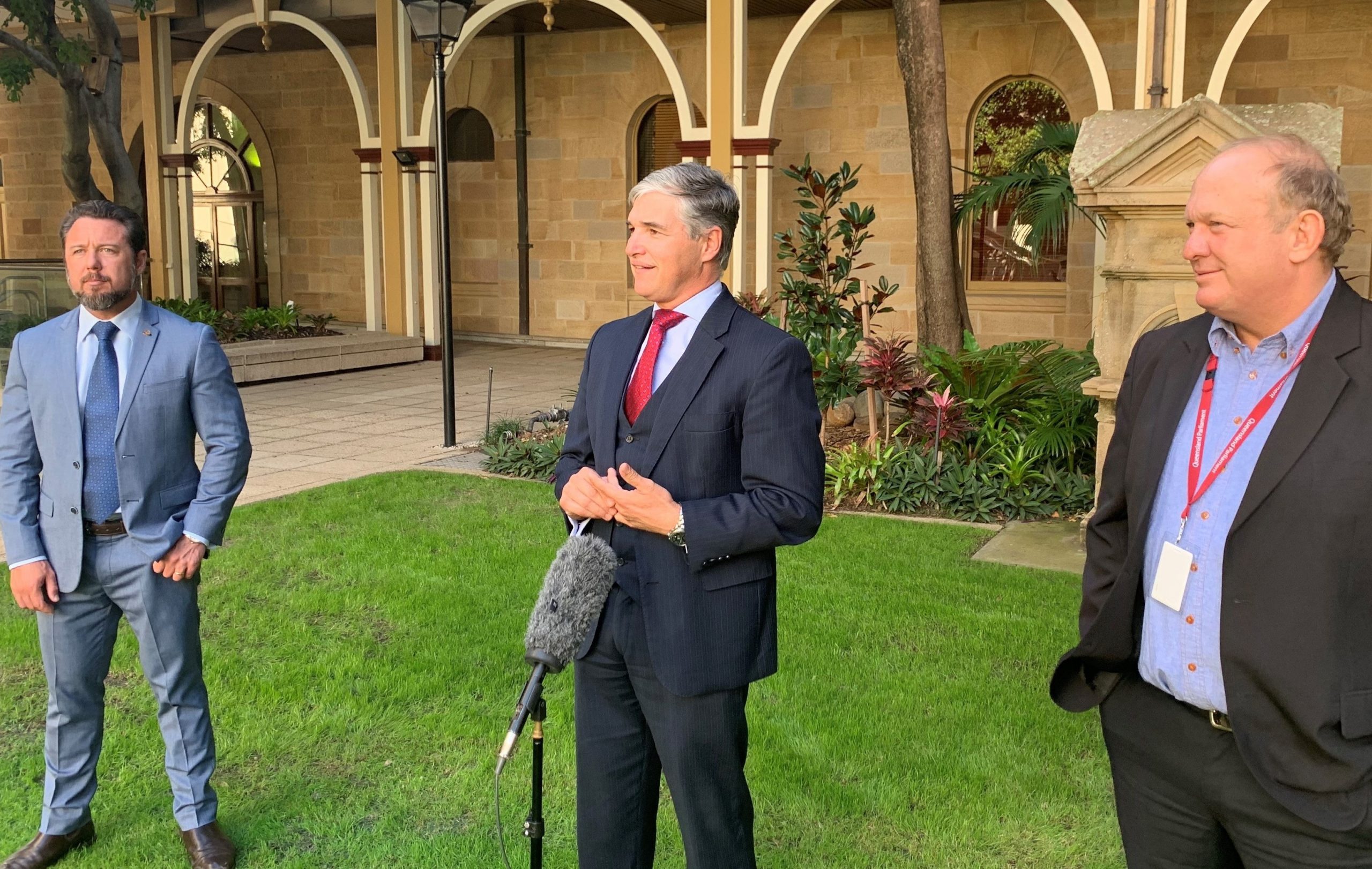
22 May KAP puts pressure on Premier to de-centralise
Katter’s Australian Party (KAP) MPs have this week called on the Palaszczuk Labor Government to move towards decentralising its Brisbane-based public service.
The move away from the public “Brisbane behemoth” would reduce red tape, stimulate regional economies and help mitigate the divide between the capital and the rest of the state, KAP Leader and Traeger MP Robbie Katter has said.
Echoing pro de-centralisation calls by Federal Labor Leader Anthony Albanese this week, Mr Katter said the process was long over-due and would be key to the future of a prosperous Queensland.
Speaking in the Federal Parliament, Mr Albanese said the nation had a “once in a century” moment to overhaul its economy and future through de-centralisation.1
He said the process of decentralisation needed to start with the restoration of public sector jobs, in areas like Centrelink, Medicare and Veterans’ Affairs, to regional communities.
“The contracting out of essential public services is not in the national interest and must stop,” he said in the Federal Parliament
“It’s time to put human beings and human dignity back in to human services.”
According to Queensland public service workforce statistics from 2019, more than 53 per cent of state’s government jobs are based in the south-east corner (including Brisbane, Toowoomba and the Gold and Sunshine Coasts).
An incredible 45,864 (almost 20 per cent) full-time equivalent jobs are located in the Brisbane CBD area, representing the huge number of desk jobs – as opposed to frontline workers needed to service the large critical mass of people in the area – that could be located to the regions.
Mr Katter said the COVID-19 crisis had highlighted the pitfalls of centralisation.1
“We think there was an important omission in the debate had by the State Government this week on COVID-19, and that is to respond to the call from the Federal Labor Leader this week to engage in a policy of de-centralisation,” Mr Katter said.
“COVID-19 has shown us there is benefits in having that separation of services; where it exists already it has helped us get through this time and it has also proved to be key to stimulating regional economies in our economic ‘fight-back’.
“It is the KAP’s position that we should be seeing these government departments moving out to the regions, and the process of centralisation that has crept up on us for decades needs to stop.
“We are now calling on the Palaszczuk Labor Government to start working towards this.”
Mr Katter said there was an onus on State Labor to respond to Mr Albanese’s clear message.
He said the key benefits of de-centralisation included: the reduction of unnecessary red tape stimulating regional economies and creating local jobs where they are desperately need and centring decision-making in the communities actually affected by them.
“A major virtue would be that having the departments, or sections of the departments, in the regions would mean the public will deal directly with people who are embedded in their area and who know local issues firsthand,” Mr Katter said.
“Untold problems are caused when government decision-making gets lumped on some bureaucrat located thousands of kilometres away, and this is one way to address that.
“This situation is why you always get so much backlash from places like North Queensland where decisions are often made against them in the negative, because they feel removed from the government processes around topics that directly impact them.”
The KAP is advocating for an incremental process of decentralisation, and in the first instance is calling for sections of the mining, agriculture and fisheries departments to be relocated to places like Mount Isa/Mackay, Townsville and Cairns respectively.
“The key point to acknowledge is what we are calling for has been happening gradually in the reverse for many years; for example, years ago the Department of Mines ceased its operations in Mount Isa,” Mr Katter said.
“This has happened time and time again across rural and regional Queensland to the point we have an extremely centralised and I would argue at times, very out-of-touch, public sector that is designing Queensland’s future with little to no understanding of life outside of the south-east corner.
“I am repeatedly told of the frustration felt by constituents when they call up government hotlines to enquire about something, and the person on the end of the phone hasn’t even heard of the place they are calling from.
“The Premier now needs to defend why she wouldn’t do this.”

Sorry, the comment form is closed at this time.